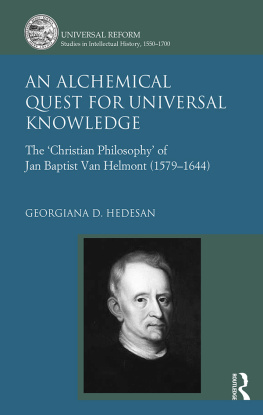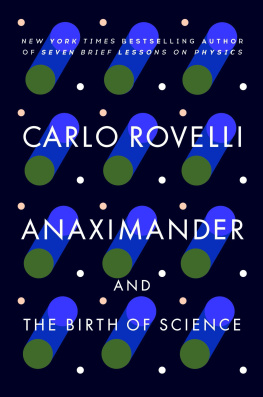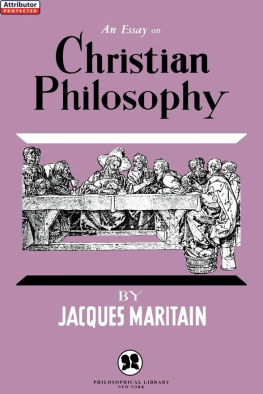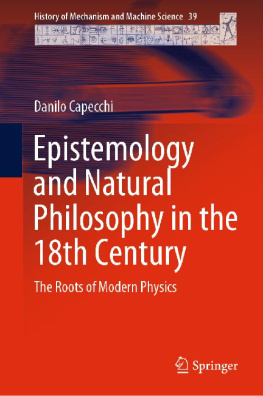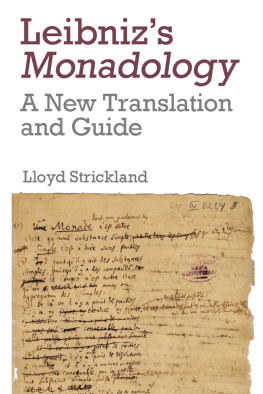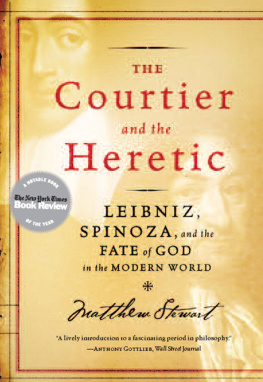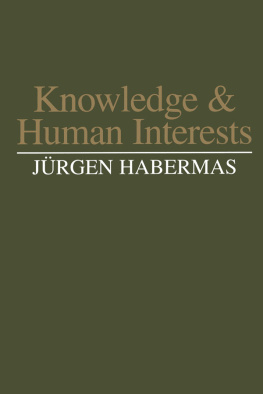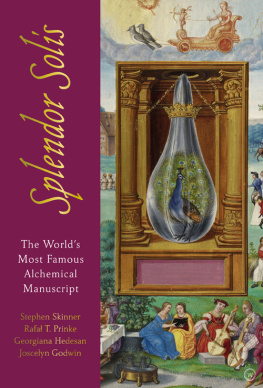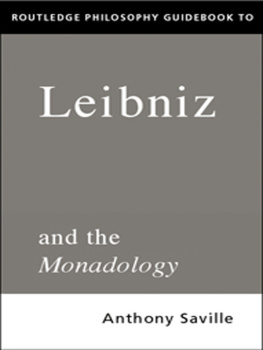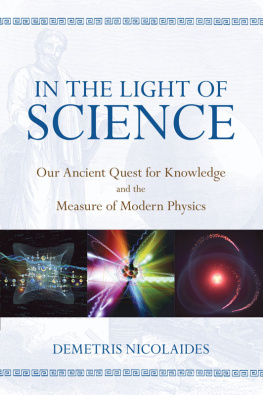An Alchemical Quest for Universal Knowledge
History of science credits the Flemish physician, alchemist and philosopher Jan Baptist Van Helmont (15791644) for his contributions to the development of chemistry and medicine. Yet, as this book makes clear, focussing on Van Helmonts impact on modern science does not do justice to the complexity of his thought or to his influence on successive generations of intellectuals like Robert Boyle or Gottfried Leibniz.
Revealing Van Helmont as an original thinker who sought to produce a post-Scholastic synthesis of religion and natural philosophy, Georgiana Hedesan reconstructs his ambitious quest for universal knowledge as it emerges from the text of the Ortus medicinae (1648). Published after Van Helmonts death by his son, the work can best be understood as a compilation of finished and unfinished treatises, the historical product of a life unsettled by religious persecution and personal misfortune. The present book provides a coherent account of Van Helmonts philosophy by analysing its main tenets.
Divided into two parts, the study opens with a background to Van Helmonts concept of an alchemical Christian philosophy, demonstrating that his outlook was deeply grounded in the tradition of medical alchemy as reformed by Theophrastus von Hohenheim, called Paracelsus (14931541). It then reconstitutes Van Helmonts biography, while giving a historical dimension to his intellectual output. The second part reconstructs Van Helmonts Christian philosophy, investigating his views on God, nature and man, as well as his applied philosophy. Hedesan also provides an account of the development of Van Helmonts thought throughout his life. The conclusion sums up Van Helmonts intellectual achievement and highlights avenues of future research.
Georgiana D. Hedesan is a Wellcome Trust Fellow in Medical History and Humanities at University of Oxford, working on a research project on the quest for universal medicine and radical prolongation of life in seventeenth-century alchemy (20132016). Prior to this, she held a short-term Cantemir Junior Fellowship at University of Oxford and a Frances A. Yates fellowship at the Warburg Institute, London. A PhD in History from University of Exeter (2012), she is the author of several articles and reviews in scholarly journals dealing with Paracelsus, Van Helmont and alchemy, including articles published in Medical History and Ambix, as well as chapters in books either published or to be published by University of Chicago Press, Ashgate and Routledge.
Universal Reform: Studies in Intellectual History, 15501700
Series Editors
Howard Hotson, St Annes College, Oxford, Vladimr Urbnek, Academy of Sciences of the Czech Republic, Prague
The fission of the western Church in the Reformation era released great quantities of energy, not all of which was contained by the confessional churches. Alongside the well-studied process of confessionalisation and the persistence of variety within popular religion, the post-Reformation period witnessed a series of poorly understood attempts by a wide variety of intellectuals to extend the reforming impulse from the spheres of church and theology to many different areas of life and thought. Within these ambitious reforming projects, impulses originating in the Reformation mixed inextricably with projects emerging from the late-Renaissance and with the ongoing transformations of communications, education, art, literature, science, medicine and philosophy. Although specialised literatures exist to study these individual developments, they do not comfortably accommodate studies of how these components were sometimes brought together in the service of wider reforms. By providing a natural home for fresh research uncomfortably accommodated within Renaissance studies, Reformation studies and the histories of science, medicine, philosophy and education, this new series will pursue a more synoptic understanding of individuals, movements and networks pursuing further and more general reform by bringing together studies rooted in all of these subdisciplinary historiographies but constrained by none of them.
First published 2016
by Routledge
2 Park Square, Milton Park, Abingdon, Oxon OX14 4RN
and by Routledge
711 Th ird Avenue, New York, NY 10017
Routledge is an imprint of the Taylor & Francis Group, an informa business
2016 Georgiana D. Hedesan
The right of Georgiana D. Hedesan to be identified as author of this work has been asserted by her in accordance with sections 77 and 78 of the Copyright, Designs and Patents Act 1988.
All rights reserved. No part of this book may be reprinted or reproduced or utilised in any form or by any electronic, mechanical, or other means, now known or hereafter invented, including photocopying and recording, or in any information storage or retrieval system, without permission in writing from the publishers.
Trademark notice: Product or corporate names may be trademarks or registered trademarks, and are used only for identification and explanation without intent to infringe.
British Library Cataloguing in Publication Data
A catalogue record for this book is available from the British Library
Library of Congress Cataloging-in-Publication Data
The LOC data has been applied for.
ISBN: 9781472469168 (hbk)
ISBN: 9781315566733 (ebk)
Typeset in Garamond Premier Pro
by Apex CoVantage, LLC
I am thankful to a number of wonderful scholars that have supported me in the arduous process of writing this book. The book grew out of my PhD thesis at University of Exeter, supervised by the regretted Professor Nicholas Goodrick-Clarke and by Professor Mark Wynn. I am grateful to both for their tremendous support and guidance throughout the PhD years. I am also thankful to Dr Stephen Clucas and Professor Jonathan Barry for their comments and advice as examiners of my thesis. I would not have been able to finish my PhD without the partial financial support of the University of Exeter and my Teaching Assistant position at its EXESESO Centre.
In the process of devising this manuscript, I have also benefitted from inestimable advice from a number of scholars. I would first single out Dr Margaret Pelling, the unsung editor of Walter Pagels book on Van Helmont, who provided invaluable comments on chapters of my book manuscript. I am also thankful to Prof Howard Hotson, Prof Robert Halleux, Dr Jennifer Rampling, Dr Anna Marie Roos, Dr Erica Charters, Dr Guido Giglioni and the series anonymous reviewers for their guiding advice at various stages of book development.
This book has greatly benefitted from a research trip at the Mechelen Archives in Belgium. In this sense, I am grateful for the financial support of the Society for the History of Alchemy and Chemistrys New Scholar Award (2011). I wish to also thank the Diocesan Pastoral Centre in Mechelen for hosting me, and archivist Dr Gerrit Vanden Bosch for his support in the Mechelen archives.
Finally, I would like to express my deepest gratitude to my family: my sister Andreea, who has unconditionally supported me throughout the PhD and early career, and my parents, Petruta and Gheorghe. I would not be here without their love.
On 4 March 1634, the Flemish philosopher, physician and alchemist Jan Baptist Van Helmont (15791644) was arrested by the Mechelen ecclesiastical court on suspicion of heresy. His imprisonment, occurring barely a year after the sentencing of Galileo Galilei (15641642) to indefinite house arrest, was also incited by the Inquisition. It occurred in a period when Counter-Reformation efforts were being directed toward challenges of orthodoxy originating within Catholic lands themselves. Like Galileo, Van Helmont was a born Catholic espousing a new philosophy that significantly deviated from traditional Aristotelian Scholasticism. Like Galileos, Van Helmonts natural philosophy also appeared to stand in contradiction with Catholic theology. Like Galileo, Van Helmont was also put under house arrest; however, he was eventually set free in 1637 without being charged.

